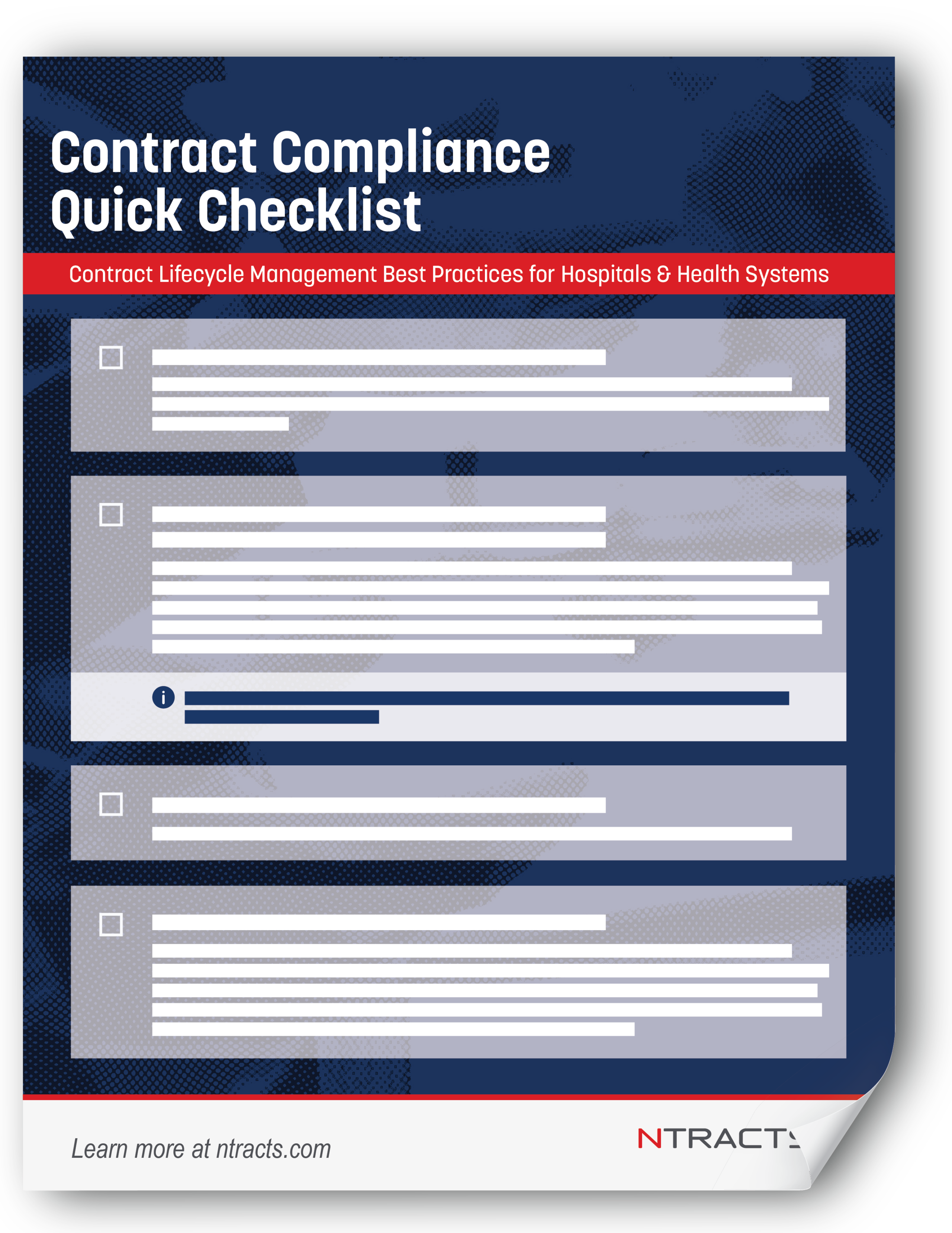
Subscribe to get the latest updates from Ntracts.
Health systems face a variety of complex legal issues that require specialized expertise and resources. While many health systems have an in-house legal team for these purposes, there are several benefits to utilizing outside counsel as well. Outside counsel can bring specialized knowledge and experience, objectivity, flexibility, and cost-effectiveness to a health system’s legal operations. In addition, outside counsel often has access to additional resources that may be otherwise unavailable. In this article, we will explore the benefits of engaging outside counsel in more detail and explain why a health system may choose to utilize outside counsel in partnership with their in-house team.
Objectivity:
Outside counsel often provides an objective perspective on legal matters that can complement those provided by in-house counsel. Their independent assessment of legal issues and unbiased advice can be particularly useful in sensitive matters.
For example, let’s say a health system is considering a merger with another healthcare organization. The in-house legal team has likely been heavily involved in diligence, review and negotiations and is invested in seeing the merger through. However, there may be legal risks or issues that the in-house legal team may not have considered or may not want to bring to light for fear of jeopardizing the merger. This is where outside counsel can provide unbiased advice. As an independent party, outside counsel can review the proposed merger and provide an objective assessment of the legal risks and benefits. They can aid in identifying any potential legal issues that the in-house legal team may have overlooked and provide an honest evaluation of whether the merger is in the best interests of the health system and is not subject to additional scrutiny by the Federal Trade commission or in violation of the law. This unbiased advice can be invaluable to a health system in making an informed decision about whether to proceed with the merger.
Expertise and Knowledge:
Though it probably goes without saying, we would be remiss not to mention this important part of utilizing outside counsel. If your health system is facing a legal issue for the first time – such as a healthcare fraud investigation by the Department of Justice (DOJ) for example or lawsuit brought by the Federal Trade Commission (FTC)– outside counsel can provide specialized knowledge and expertise that the in-house legal team may not have.
While the health system may have an in-house legal team with experience in healthcare regulations, they may not have the specialized expertise and knowledge required to navigate a complex DOJ investigations or FTC lawsuits. This is where outside counsel can add value. They can provide guidance on responding to subpoenas and requests for information, managing the investigation process, and negotiating a settlement or plea agreement. Outside counsel can also bring a fresh perspective to the investigation and identify potential legal issues or defenses that the in-house legal team may have overlooked.
By working with outside counsel, the health system can better protect its interests and ensure that it is following all applicable laws and regulations during the investigation process.
Cost & Time Savings:
When a health system needs legal assistance on a specific issue, it may be more cost-effective and time-efficient to hire outside counsel on an as-needed basis rather than maintain additional full-time in-house legal team members. If your organization is facing a complex litigation matter that requires extensive legal resources, it may be more cost-effective to bring on outside counsel with specialized expertise in that area rather than hiring additional in-house staff.
By utilizing outside counsel, the health system can avoid the costs associated with hiring, training, and maintaining a full-time legal team, which can include salaries, benefits, and overhead expenses. Additionally, outside counsel can often provide legal services at a lower hourly rate than an in-house legal team due to economies of scale and efficiencies gained from working with multiple clients. By using outside counsel, a health system can get the legal assistance it needs at a lower cost, which can help it operate more efficiently and effectively.
Moreover, outside counsel can dedicate more resources and personnel to a specific legal matter, resulting in faster resolution and ultimately, saving time and resources for the health system.
Access to Resources
Outside counsel often have access to additional resources, such as legal research databases, that may not be available in-house. This can help them provide a more comprehensive legal analysis and better support their clients.
When a health system is facing complex legal issues, they could require specialized legal research databases or other resources that are not available in-house. Many times, a health system may need to research a new healthcare law that was recently passed and analyze how it will impact their operations.
Outside counsel can provide access to legal research databases and other resources that they use in their practice, which may not be available to the health system’s in-house legal team. This can save the health system time and money on research and allow them to more quickly and efficiently get the legal advice they need.
Additionally, outside counsel may have relationships with other professionals in the legal community, such as experts or consultants, that they can bring in to assist with a legal matter. By utilizing these additional resources, outside counsel can provide a more comprehensive legal analysis and better support their clients.
Improved Contract Negotiations:
When negotiating contracts, outside counsel can provide a fresh perspective and specialized expertise that may not be available in-house. For example, if a health system is negotiating a contract with a vendor for medical supplies, outside counsel with experience in healthcare procurement can provide valuable insights into industry-standard terms and pricing. This can help the health system achieve more favorable terms and conditions in their contracts, such as lower prices or better payment terms.
In short, a healthy relationship with outside counsel can be a valuable asset for a health system, providing expertise, cost savings, improved contract negotiations, improved legal compliance, and faster resolution of legal issues. By building and maintaining a strong relationship with their outside counsel, health systems can ensure that they are receiving the highest quality legal support and that their business interests are protected.



![[Podcast] Highway to Health: “Contract Life Cycle Management is Coming Out on Top, as Healthcare Providers Increasingly Rely on the Tool”](https://www.ntracts.com/wp-content/uploads/2023/08/Podcast-Thumbnail-500x383.jpg)
